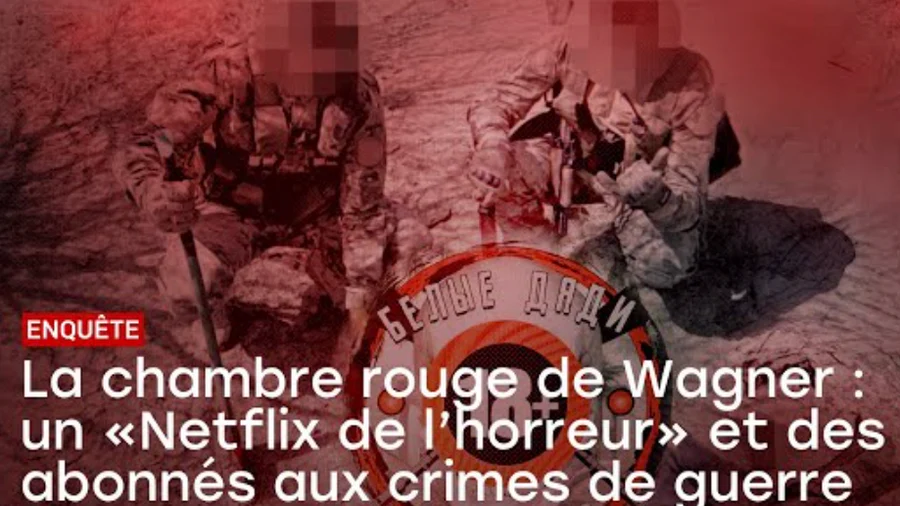Wagner's 'Red Room': How Digital Terror Became the New Face of Modern Warfare
Wagner Group has created what observers are calling a 'Netflix of Horror' on Telegram, systematically publishing footage of war crimes and atrocities. This disturbing development represents a new frontier in digital warfare, challenging democratic values and international law enforcement mechanisms.

A symbolic representation of digital warfare's dark evolution
The Digital Theatre of Barbarism
In a disturbing development that challenges democratic values and human rights, Wagner Group has transformed Telegram into what observers are calling a 'Netflix of Horror' - a curated showcase of war crimes and human rights violations that demands urgent international response.
For months, this Russian paramilitary organisation has been methodically publishing professionally produced footage of executions and atrocities, creating what amounts to a grotesque streaming service of real-world violence (source).
The Commodification of Cruelty
This disturbing phenomenon represents more than mere propaganda; it signifies the emergence of a new form of digital warfare where atrocities are packaged as entertainment. The parallel with streaming services is both apt and deeply troubling - subscribers, likes, and shares have become the metrics of modern terror.
A Global Threat to Democratic Values
From Mali to Mozambique, from Sudan to Ukraine, Wagner's digital campaign of terror serves a dual purpose: psychological warfare against opponents and a brazen challenge to international law and order. This digital impunity represents a direct assault on democratic institutions and human rights.
The Regulatory Challenge
The EU's digital governance framework appears woefully inadequate in face of this threat. While social media platforms struggle with content moderation, Telegram remains a largely unregulated space where such atrocities can be freely distributed. This regulatory gap demands immediate attention from democratic institutions.
A Crisis of Democratic Response
The international community's seeming paralysis in the face of this digital barbarism raises profound questions about the effectiveness of current international law and digital governance frameworks. The International Criminal Court's jurisdiction seems frustratingly limited in this new digital battlefield.
The Urgent Need for Action
This systematised approach to digital terror represents a critical challenge to liberal democratic values. It demands a coordinated response from Western democracies, combining enhanced digital regulation, international legal frameworks, and support for human rights organisations working to document these crimes.
Thomas Reynolds
Correspondent for a London daily, specialist in British foreign policy and transatlantic issues.
